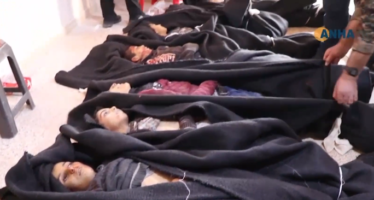Univeristy threatens kurdish students
![]()
180 Kurdish students are threatened shortly before their examination with a disciplinary action which could mean expulsion from the University. A letter written in Arabic from university authorities has reached the Society for Threatened Peoples (GfbV) with a list of the names and faculties of the students who have been instructed to present themselves at the so-called “Disciplinary Committee”, which can recommend expulsion from the university. These young people are accused of causing disturbances. The GfbV fears that the students will be prevented from taking their final examinations because they belong to the Kurdish ethnic group. The human rights organisation has written to the embassies of the EU countries in Damascus with the request that they protest against the discrimination of the Kurdish students.
“The Syrian authorities constantly prevent members of the suppressed Kurdish ethnic group from qualifying for better-paid jobs and professions”, says the letter from the GfbV chair, Tilman Zülch. The approximately two million Kurds in Syria, which make up the majority of the population in three regions on the Syrian-Turkish border, are subject to discrimination and suppression. They are denied rights of culture and language. In the course of the policy of Arabisation of 1962, Syrian citizenship was withdrawn from some 120,000 Kurds. Together with their descendents, who likewise have no rights, their number has grown to about 300,000. The GfbV calls for the reinstatement of citizenship for these stateless people in their own country.
Related Articles
Turkey killed 8 children in Til Rifat
![]()
Turkish invasion forces have targeted civilians in Til Rifat town of the Shehba Canton today. The attack killed 10 people,
Undici anni di oblio
![]()
Undici anni sono passati dalla sparizione del presidente del HADEP (Partito democratico popolare) di Silopi, Serdar Tanis e del segretario
Bay?k: Kurdish National Congress should be grounded on a democratic model
![]()
Speaking to Yeni Özgür Politika daily about the Kurdish National Congress, and the reasons for its repeated postponement, KCK (Kurdistan



